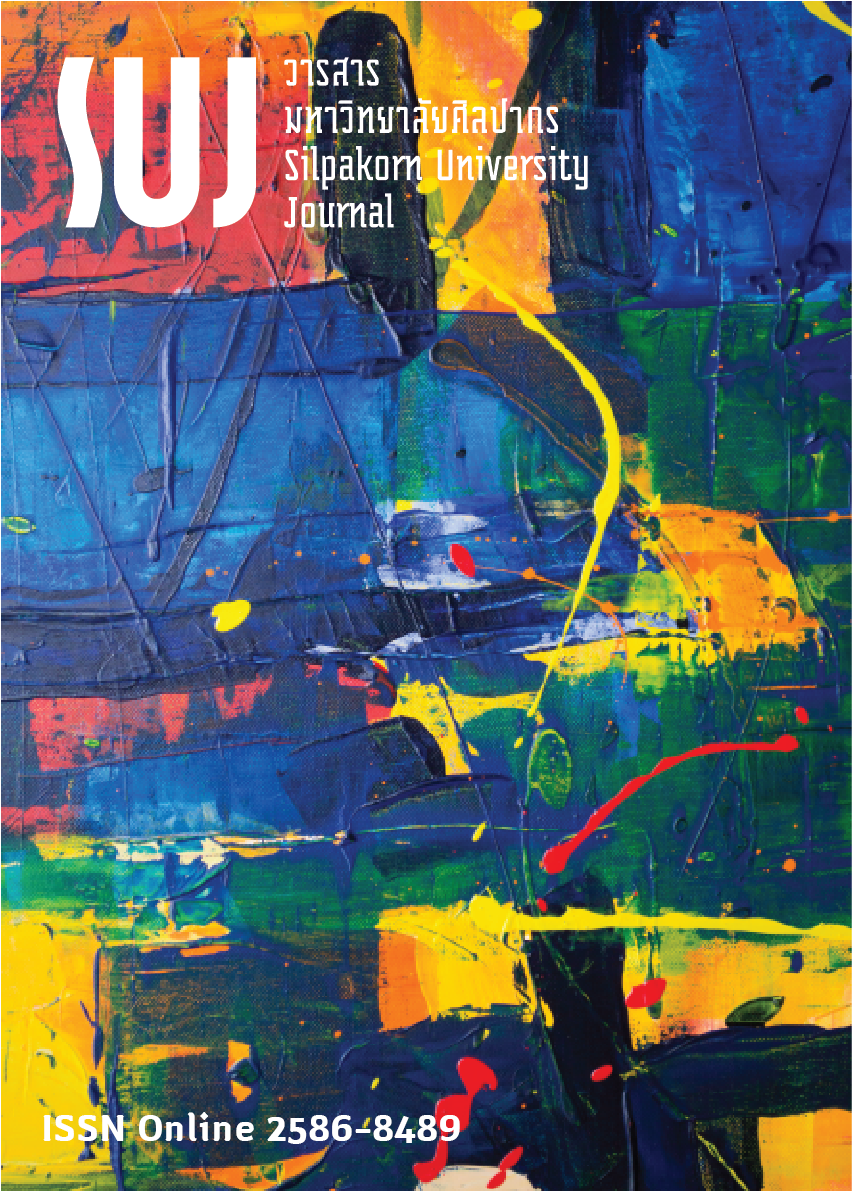ภาพลวงทางการคลัง :บทวิเคราะห์ผลกระทบจากการดำเนินนโยบายประชานิยม (Fiscal illusion: An analysis of impacts from the implementation of populism)
Main Article Content
Abstract
บทความนี้ มุ่งเสนอสาระสำคัญเพื่อสร้างความเข้าใจใน 2 ส่วน คือ นโยบายประชานิยมและภาพลวงทางการคลัง ในมุมมองที่ว่า การดำเนินนโยบายประชานิยมนั้นมีส่วนก่อให้เกิดการสร้างภาพลวงทางการคลัง โดยนโยบายประชานิยมในบริบทของประเทศไทยนั้น เริ่มมีการดำเนินการอย่างเห็นชัดเจนที่สุดในสมัยรัฐบาลพรรคไทยรักไทย ที่มีการใช้นโยบายเป็นเครื่องมือในการแสวงหาฐานเสียง โดยนโยบายประชานิยมในขณะนั้น มีเป้าหมายเพื่อกระจายรายได้และสร้างความเป็นธรรมในสังคมที่เน้นไปยังการให้ประโยชน์แก่ประชาชนกลุ่มรากหญ้า แต่ทั้งนี้ การดำเนินนโยบายประชานิยมที่ผ่านมาในแต่ละรัฐบาล ได้สร้างผลกระทบหลายมิติ สิ่งหนึ่งคือ การสร้างภาพลวงทางการคลัง สำหรับประเทศไทย ภาพลวงทางการคลังเกิดขึ้นในลักษณะที่ประชาชนมีความเข้าใจในสถานะทางการคลังที่คลาดเคลื่อน อันเนื่องมาจากการขาดความเชื่อมโยงในระบบการจัดเก็บรายได้และการจัดบริการสาธารณะจากรัฐที่ไม่สอดคล้องกัน การขาดความรับผิดชอบทางการคลังของรัฐบาลในการสร้างเสถียรภาพทางการคลัง โดยอาจพิจารณาได้จากการตั้งงบประมาณขาดดุลอย่างต่อเนื่องและอัตราหนี้สาธารณะที่ผันผวน และรวมไปถึงการมีทัศนคติกินฟรีของประชาชน ที่มุ่งคอยแต่รอรับประโยชน์จากกิจการของรัฐ ดังนั้น แนวทางการแก้ปัญหาภาพลวงทางการคลังคือ รัฐบาลต้องให้ความสำคัญกับการสร้างวินัยทางการคลังและสนับสนุนให้ประชาชนสามารถเข้าถึงข้อมูลทางการคลังของประเทศได้ ในส่วนของประชาชนจะต้องทำหน้าที่เป็นกลไกในการตรวจสอบและวิพากษ์วิจารณ์การดำเนินการคลังของรัฐบาลในฐานะที่เป็นพลเมืองตามระบอบประชาธิปไตย เช่นนี้ ภาพลวงทางการคลัง จะหายเลือนไปกลายเป็นภาพที่ชัดเจนทางการคลัง อันจะนำไปสู่เสถียรภาพทางการคลังที่ดีในอนาคต
This article aims to shed light on 2 main points: the populism and fiscal illusion, based on the view that the implementation of populism has caused the fiscal illusion. The implementation of populism in the Thai context was apparent during Thai Rak Thai government; the policy was used to gain the political stronghold since it aimed to distribute income and to create justice in society, which benefited the grassroots. However, the previous implementation of populism had an impact in several dimensions, one of which was the creation of fiscal illusion. For Thailand, the instantiation of fiscal illusion came in the form of people having misunderstanding about the fiscal status due to lack of coordination in the revenue collection system, lack of provision of relevant public services, government’s lack of fiscal responsibility to achieve fiscal stability, evident from the on-going budget deficit and fluctuating public debt rates, and the ‘free-ride’ attitudes of people who were dependent on the public benefits. In consequence, the solution of fiscal illusion is that the government needs to focus on creating fiscal disciplines and facilitate people’s access to national fiscal information. As for the people, they need to fulfil their duties as a checking mechanism and criticize the government’s fiscal operations according to their citizenship role in the democratic system. In so doing, the fiscal illusion will disappear, and the fiscal stability will ensue in the future.
Article Details
References
Alesina, A., & Perotti, R. (1996). Fiscal Discipline and the Budget Process. American Economic Review Papers and Proceedings, 86(2): 401-407.
Downs, A. (1957). An Economic Theory of Political Action in a Democracy. Journal of Political Economy, 65(2): 135-150.
Fiscal Policy Office. (2015). Fiscal Risk Statement 2015 (รายงานความเสี่ยงทางการคลั งประจำปีงบประมาณ 2558). Bangkok: Fiscal Policy Office.
Forte, F. (2004). “Fiscal and Monetary Illusion and the Maastricht rules”, XVI Conference SIEP-Societá Italiana di Economia Pubblica, Pavia.
Galbraith, J. K. (1958). The Affluent Society. Boston: Houghton-Mifflin.
Jagers, Jan., & Walgrave, Stefaan. (2007). Populism as political communication style: An empirical study of political parties’ discourse in Belgium. European Journal of Political Research, 46(3): 319-345.
Krueathep, Weerasak. (2012). Fiscal Illusion in Thai Public Financial Administration : An Analysis of the Voter’s Perspective in the 2011 General Election (ปรากฏการณ์ภาพลวงตาทางการคลัง : บทวิเคราะห์ทัศนคติทางการคลังของประชาชนในการเลือกตั้งทั่วไป พ.ศ. 2554). NIDA Economic Review, 6(1): 37-78.
Laothamatas, Anek. (2006). Thaksina-prachaniyom : Meaning, Problems and Solutions (ทักษิณา- ประชานิยม : ความหมาย ปัญหาและทางออก). Bangkok: King Prajadhipok’s Institute.
Lingle, C. (2002). The Perils of Populism. [Online]. Retrieved June 15, 2017, from https://fee.org/ articles/the-perils-of-populism/
Madrid, R. L. (2008). The Rise of Ethnopopulism in Latin America. World Politics, 60(3): 475-508.
Mourao, P. R. (2008). Towards a Puviani’s Fiscal Illusion Index. Hacienda Pública Española/ Revista de Economía Pública, 187(4): 49-86.
Oates, W. E. (1988). On the nature and measurement of fiscal illusion. In G. Brennan et al. (eds.), Taxation and fiscal federalism: Essays in Honour of Russell Mathews. Sydney: Australian National University Press.
Phipatseritham, Nantavut. (2008). Factors affecting the emergence of populism in Thailand (ปัจจัยที่มีผลกระทบต่อการเกิดขึ้นของประชานิยมในประเทศไทย). Thammasat Economic Journal, 26(3): 119-166. Public Debt Management Office. (n.d). Public Debt Data. [Online]. Retrieved April 13, 2018 from https://www.pdmo.go.th/popup_money_data.php?m=money&ts2_id=1
Public Debt Management Office. (n.d). Public Debt Data. [Online]. Retrieved April 13, 2018 from https:// www.pdmo.go.th/popup_money_data.php?m=money&ts2_id=1
Roberts, K. (2010). Latin America’s Populist Revival. SAIS Review, 27(1): 3-15.
Sanz, I., & Vélasquez, J.F. (2003). Fiscal illusion, fiscal consolidation and government expenditure composition in the OECD: a dynamic panel data approach. European Economy Group Working Paper 21. Spain: European Economy Group.
Thaipublica. (2012). Populist Assessment “Rattaban Pee Kon Raek” The 6.71 hundred million baht spending, chance or debt in the future? (ประเมินประชานิยม “รัฐบาลพี่คนแรก” ใช้เงิน 6.71 แสนล้าน โอกาสในวันนี้ หรือหนี้ในวันหน้า?). [Online]. Retrieved April 15, 2018, from https://thaipublica.org/2012/12/world-bank-populist-policy/
Twight, C. (1994). Political Transaction-Cost Manipulation: An Integrating Approach. Journal of Theoretical Politics, 6(2): 189-216.
Wayland, Kurt. (2001). Clarifying a Contested Concept: Populism in the Study of Latin American Politics. Comparative Politics, 34(1): 1-22.
Wittman, D. (1995). The myth of democratic failure: why political institutions are efficient. Chicago: The University of Chicago Press.

